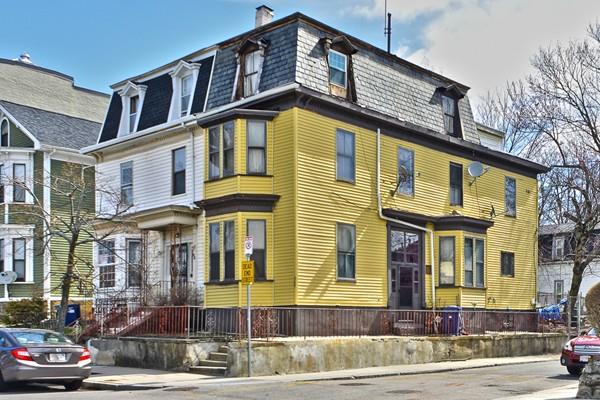Residential Property in Boston

If you're planning to sell your residential Boston property, there are two key factors to focus on: accurate pricing and an effective marketing strategy. The agents found on Boston Apartment Network understand how to price your home to suit the Boston real estate market, and are experts at combining traditional and creative marketing strategies to advertise your property to an ideal group of possible buyers. With the knowledge and experience that comes from working for years in the Boston real estate market, an agent from Boston Apartment Network will help you through each step of the process of selling your Boston home.
Step One: Making the Decision to Sell
There are a host of reasons to think about selling your Boston home, but whatever the reason, it is of the utmost importance that you research the current Boston real estate market before deciding to sell. Working with a real estate agent will help you compare your financial situation to the current atmosphere of the Boston market, and help outline your personal financial goals for the sale. Once you have officially decided to sell your property and established your goals, your Boston agent will begin planning the best strategy to sell your home while meeting your financial goals.
Step Two: Finding the Right Price for Your Boston Home
The real estate specialists found on Boston Apartment Network know how to price your home to maximize its value in the current market. Your agent will compare your Boston home with other, similar properties that have recently been sold in Boston, allowing them to determine the highest realistic price for your residential property. Boston, like any other city, may have different market values for properties depending on what specific area of the city they are located in. It is also important to keep any additional closing costs in mind when pricing your Boston home. Creating a realistic pricing strategy while still maximizing the value of your Boston home is very important in determining a timeline and deciding your financial goals for the sale.
Step Three: Preparing Your Home for Sale
The next step in the sale process is to prepare your Boston home to be sold. First off, you need to have a licensed home inspector review your property before it can be sold. The home inspection process is absolutely essential in teaching you what simple fixes you can make to drive up your home's value. Your Boston agent will help you plan the best improvements and upgrades to make before your home hits the market.
Another important step in preparing your home for sale is hiring a professional cleaning company to spruce up your Boston property. Making sure that your home is attractive to the eye is key in impressing potential buyers. Going the extra mile to make these small, simple improvements to your property makes all the difference in increasing the value of your Boston home and impressing potential buyers.
Step Four: The Marketing Process
After pricing, inspecting and improving your home, your Boston real estate agent will begin the process of marketing your property. Your Boston agent has a variety of resources with which to market your property effectively. Your agent has longstanding connections with property investors and qualified buyers throughout Boston, as well as having access to a huge online network of real estate technologies to guarantee that your property achieves maximum market exposure. Agents found on this site also use online avenues to further market your listing, including mobile applications, an interactive national real estate website, and a network of 80+ proprietary real estate websites focusing on the Boston area market. Once the marketing process has started, your Boston agent will make sure to screen all potential buyers to avoid bad offers and find qualified clients to sell your Boston home for the highest possible price. By exposing your home to the largest audience across the Boston real estate agent, you better the chances of selling it for the highest possible value.
Step Five: Analyzing and Negotiating Your Purchase Offers
After you have received several offers on your Boston property, you and your Boston agent can begin the negotiation process. The amount of potential buyer traffic that your property has received will usually determine the length of the negotiation process. If you've attracted a lot of traffic, it is usually best to lengthen the negotiation process in case more attractive offers come in. If your property has not received a heavy amount of traffic, it is best to keep negotiations short in order to ensure that the potential buyer continues with their offer.
No matter the amount of traffic or negotiation timeline, the goal of every sale negotiation is to attain the best value and sales terms possible for you and your Boston property. Different terms may have different impacts the financial returns from your sale. In order to best protect your financial returns, keep these contingencies in mind:
Mortgage Contingency: How much is the buyers down payment, and how long will it take for the bank to give them a commitment on their loan?
Home Inspection Contingency: Is a home inspection one of the buyer's requirements? If so, how much of the cost are they willing to pay?
Earnest Money Deposit Schedule: How much money is required to bind the offer, and what amount will be put down with the Purchase and Sale (P&S) agreement?
Determining the correct negotiation length and securing the best price and terms for the sale of your Boston property are the most important factors of the entire sales process. Naturally, it is of the utmost importance that these factors are handled correctly. Your Boston real estate agent will be there to help you and guide you throughout the negotiation process to make sure that your sale is working to achieve your financial and personal goals.
Step Six: The P&S Agreement
After an initial offer has been evaluated and accepted in principle, the specific terms and details of the sale must be outlined in a Purchase and Sale (P&S) agreement. The P&S agreement is usually completed 1-2 weeks after the acceptance of the initial offer, and is a requirement in finalizing the sale of your property. Because the P&S agreement can be extremely detailed and technical, you should work with a high quality Boston real estate lawyer to help you draft and negotiate the P&S. While the P&S agreement is being drafted, both buyer and seller should work on fulfilling any and all other contingencies (home inspection, financial planning, etc) that were agreed upon in the initial offer. By fulfilling these contingencies while your P&S agreement is being written, the entire sales process moves faster.
Step Seven: Closing
After finalizing and signing the P&S agreement, the final step is closing on the sale of your Boston home. Normally, closing takes place about 30-60 days after finishing the P&S agreement. During this period, the lending bank commits a loan to the buyer, and then the buyer executes the title examination. In order to close on the sale, there are some specific items that the state of Massachusetts requires the seller (or his real estate agent) to supply, including:
- The Smoke Detector Certificate - To ensure that your Boston property meets safety standards, the fire department must inspect and approve the fire and carbon monoxide detectors in your home. The guidelines to attain this certification are update frequently, so remember to read and follow the latest guidelines before setting up an inspection appointment.
Title V Certificate - The Title V certificate certifies that a properties septic systems are working properly.
6D Certificate (for condominiums) - This certification guarantees that any common charges or dues have been paid on a condominium.
To finish closing on the sale of your Boston property, you will also need a HUD document, which is written up by the closing attorney. The HUD document is a detailed summary of the entire financial transaction, and is the legal endpoint for closing on the property. Once all of the required documents have been signed and executed, the buyer will get their loan from the lending body, and the seller will receive their payment. The Registry of Deeds will keep records of all the closing documents on your sale, and, the sale of your residential Boston property will be complete.
If You Want to Learn More, or are Ready to Start Selling Your Boston Home, fill this form below!





